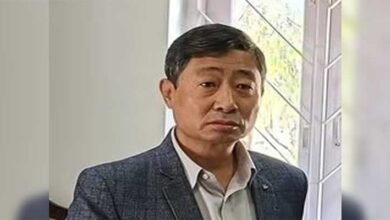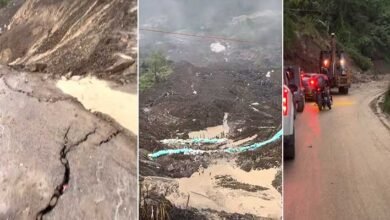Nagaland: NSCN-IM in Crisis Mode, Founder’s Son Walks Out, Sparks Uproar
Ikato Chishi Swu’s resignation exposes internal rifts, threatens to derail peace talks with Centre.

GUWAHATI- In a dramatic development that has sent shockwaves across insurgency-watching circles, Ikato Chishi Swu, the son of NSCN-IM’s founding chairman Isak Chishi Swu, has publicly resigned from the organization, accusing the group’s leadership of corruption and moral decline.
His statement, carried by multiple regional media outlets, alleges that key positions within the outfit could be bought with large sums of money—an explosive claim for an organization long seen as a torchbearer of the Naga nationalist cause.
Also Read- Supreme Court Hearing on Waqf (Amendment) Act 2025, Day-2
Swu’s exit comes amid renewed factional tension inside the National Socialist Council of Nagaland (Isak-Muivah), a group that has for decades negotiated with the Indian government for a sovereign “Nagalim”. The timing is crucial, with peace negotiations stalled over demands for a separate Naga flag and constitution, despite the 2015 Framework Agreement.
Sources close to the organization reveal that dissent has been simmering for months, especially after a November 2024 incident where 15 military officers backed commander-in-chief Anthony Ningkhan Shimray in demanding action against 14 “mutineers” within the ranks.
Also Read- Hundreds Protest Against Waqf Act in Silchar, Clash with Authorities
Political analysts say Swu’s departure marks a “crucial fracture” that could trigger a wider revolt or even another split, reminiscent of the group’s infamous 1988 schism with the formation of NSCN-Khaplang.
With NSCN-IM’s influence still strong across Nagaland, Manipur, Arunachal Pradesh, Assam, and parts of northern Myanmar, the fallout could have wide-reaching implications on both regional security and the fragile Naga peace process.
Also Read- Methamphetamine Worth ₹54 Crore Seized, One Arrested
The NSCN-IM leadership, including general secretary Thuingaleng Muivah, has not yet officially responded to the allegations. However, insiders suggest a damage-control exercise is underway.
As observers await the next moves—either reconciliation or further fragmentation—the crisis may well mark a new chapter in Northeast India’s long-running insurgent history.









